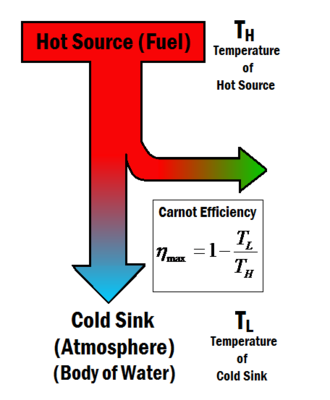Short answer: No! Or rather it depends.
It's either yes or no, right? I mean...come on, man!! Either you can have efficiencies above 100% or not...right?!!???!
Well, I'll ere on the side of "it depends." On what?
Answer: How you define "efficiency?" More specifically, what reference are you comparing your output to get the percent efficiency?
For example, the concept of a Carnot Efficiency in a thermal cycle reference the high temperature of the system (Source: energyeducation.ca):
The lowest "Low Temperature" would be zero; the highest efficiency is with the highest High Temperature".
Note: when I reference "overunity", I don't mean the little desktop models that may run for a few days and touch that 100% conversion for a little while.

(Source: CGTrade.com)
I mean truly useful devices, where it can produce much more energy than it needs to overcome friction.
Well, if a device can draw from an infinite source, say the Sun, and convert that, with only a little effort to get started...wouldn't THAT be great!!
Physical Laws
The Law of Conservative of Energy is pretty clear (per Wikipedia):
states that the total energy of any isolated system (for which energy and matter transfer through the system boundary are not possible) is constant; energy can be transformed from one form to another, but can be neither created nor destroyed.
The second part is probably the easier one to understand by most people; I paraphrase:
Energy can be neither created nor destroyed, but can only change forms.
Some wise-cracker may say, "well, what about E=mc2? Energy can be converts to mass. Well, again it just changes form. But I digress.
The point is...applying this universal, unalterable LAW means that overunity is impossible.
Current "Renewables"
By current convention, solar panels, wind turbines, and wave technologies are not marketed as "overunity" or free energy devices; rather as "renewables" since the sources renew, in the case of solar, panels "daily. But where is the energy actually coming from?
The sun? Well, yes for solar panels.
The efficiency factor is defined against how much of the energy that is making it to the panel can actually get converted. Ok. But inside the panels, the efficiency would be (near) 100%...the panel does not really loose anything, right? In other words, we don’t, in mechanical and electrical systems, reference external limitations. But we do this for solar panels. Why?
We don't have to "restart" the panels...we just wait, right?
It’s probably a debate that’s deeper than this article.
Where does wind get its energy? Well, the sun of course. But again, we don’t apply an efficiency against THAT energy since it’s internal to the overall mechanism. Even if you look at the mechanical aspects, with friction, turbulence, etc., a wind turbine overcomes those losses with excess energy from the external wind. So, again, we could argue that a wind turbine is overunity...and we don't need to restart everyday.
Same arguments can be made for waves. Waves get their energy from the wind which get its from the sun. Waves can produce far more energy that we can extract, certainly enough to far overcome its internal losses.
So, for each of these, "we've" defined them by how much energy that can draw from the actuall contact...with reference to the immediate mechanical...water for the waves, and the subtract the losses from inside the system.
What about magnetics?
So, why not magnetic? (Theory alert!! Nikola Tesla seemed to working in that direction.)
What if we consider that the magnetic flux experienced by our Earth’s iron-based core is generated by the sun’s electro-magnetic flux. The geo-magnetic flux generates magnetic currents and eddies that could, in turn, interact with smaller man-made electromagnets and permanent magnets, producing other magneto-electric currents, is that possible?
Could THAT produce overunity?
Well, only if you chose the references wisely.
Hmm...Just think about it…and the possibilities.
